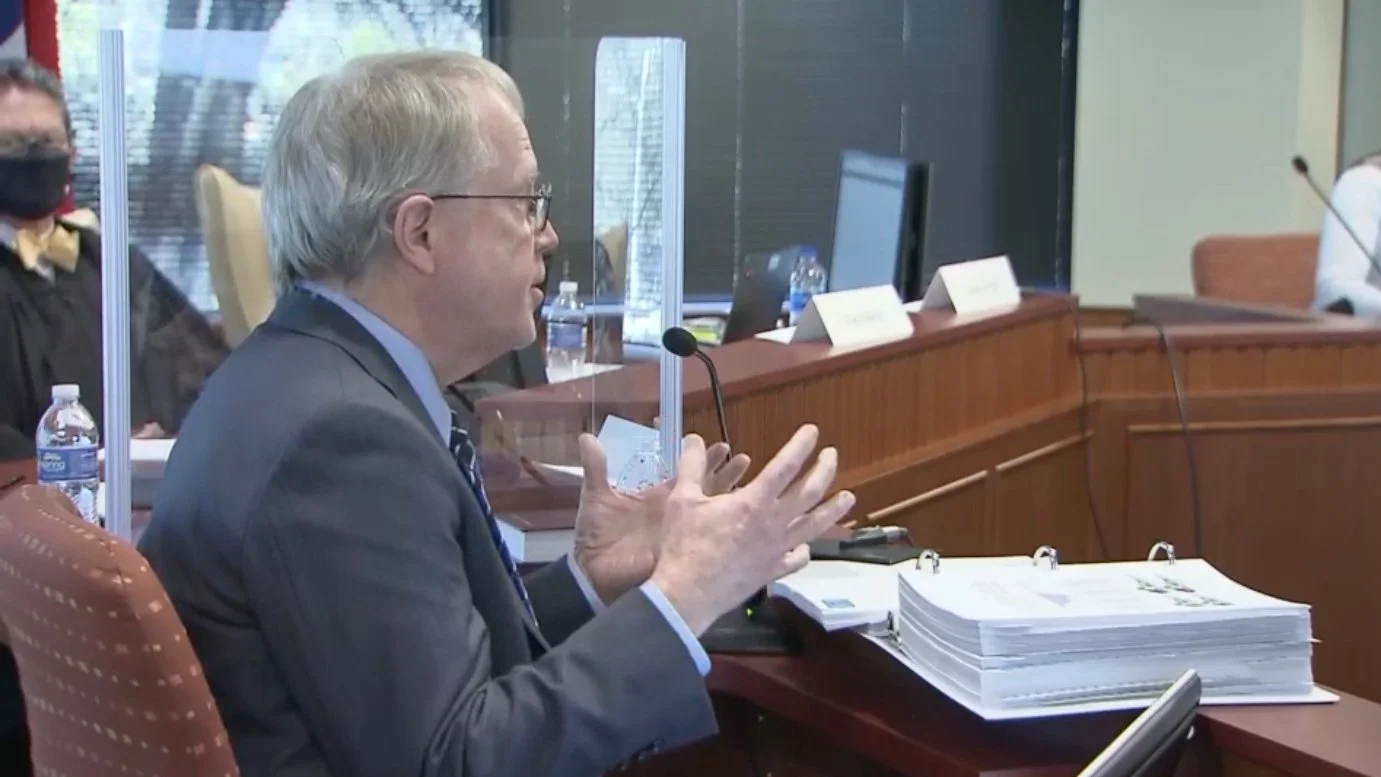The Woodshed: UNC professor claims only Democrats protect black voters' rights
By Dallas Woodhouse, The Woodshed, Carolina Journal
A liberal UNC-Chapel Hill professor testified Tuesday in Wake County Superior Court that GOP-crafted election maps represent a conservative white backlash against rising black political power. Professor James Leloudis appeared on behalf of Democratic Party-aligned plaintiffs working to overturn voting maps passed by the Republican-led General Assembly, arguing that the maps are unfair to black North Carolinians.
Leloudis, a UNC-CH history professor, testified he did not believe that legislators could remove racial considerations from map drawing even if no racial data were considered in the process.
“Race and partisan politics in North Carolina have always been tightly intertwined," Leloudis said. "For all intents and purposes, they are inseparable.”
“How is it possible to unsee the thing … so central to the politics of this state and this nation for the last 150 years? It’s hard for me to believe that by simply declaring it so to … set that history aside.”
“The legislature that engaged in partisan gerrymandering in 2011, also crafted this redistricting plan," Leloudis added. "These are cut from the same cloth and crafted by the same tailors.”
But legislative defendants highlighted previous sworn testimony from Leloudis in a pretrial deposition. At that time, the professor declared his belief that partisan and racial politics are so intertwined that black voting rights can be protected only if Democrat majorities are elected in the General Assembly, a statement that has no foundation in constitutional law.
In court, Leloudis repeated the claim he made in his deposition. He was asked: "Does there have to be a Democratic majority in the General Assembly for minority voting strength not to be diluted?"
"I think that's more or less true," Leloudis responded.
Phrased another way, Leloudis in essence stated that race and partisanship are so intertwined in North Carolina that black North Carolina voters are bound to have their constitutional rights violated as a result of voters choosing a majority of Republicans to control the General Assembly.
Legislative defendants have written to the court that Leloudis' report offers no relevant evidence concerning 2021 election maps or the redistricting process.
“In preparing his report, Dr. Leloudis did not speak to any current or former member of the General Assembly," wrote the legislative defendants. "Nor did Dr. Leloudis review or listen to any hearing of the Senate or House Redistricting Commission. As a result, Dr. Leloudis offers no opinions regarding any specific district passed by the General Assembly in 2021. Rather, the report surveys broad swaths of racial history in North Carolina and the United States going back to the Civil War. Much of the report is historically accurate, some of it is exaggerated, some of it is incorrect, but the Court need not parse the report topic by topic, because it is all irrelevant.”
Moon Duchin, math professor at Tufts University, examined the enacted maps through the lens of partisan fairness and racial vote dilution.
Duchin claimed the enacted maps “exhibit and entrench partisan skew" and “dilute racial opportunity to elect candidates of choice.”
Duchin seemed to argue that maps favoring Republicans on a partisan basis are equal to racial gerrymandering.
Legislative defendants will soon make their case that the three maps in question — N.C. House, N.C. Senate, and Congress — are constitutional. As noted in their written submissions to the court, the legislative defendants will argue "If the 2021 Plans are unconstitutionally partisan, then no plan in State history has ever been constitutional.”
Legislative defendants argue to the court that claims of partisan gerrymandering are ultimately political questions and North Carolina courts lack jurisdiction over political questions. They will ask the three-judge panel to find claims of political gerrymandering as nonjusticiable, just as the U.S. Supreme Court did on the same question in the federal courts.
Defendants argue that the provisions in the state constitution cited by the plaintiffs attempt to apply individual protections for “free elections, speech, assembly, and equal protection to a collective political group."
Legislative defendants will further argue that left-leaning plaintiffs are advocating for proportional representation based on statewide election results.
“Plaintiffs’ assertion is that the alleged inability of the Democratic Party to obtain a majority of seats when it wins the majority of votes is problematic."
"But there is no right to proportionality," the defendants add. "Although Plaintiffs play clever semantic games with the word 'proportional,' they all bypass the simple problem that there is nothing legally problematic with a state of affairs where statewide vote totals are not matched in the composition of a legislative body elected from single-member, geographic-based districts."
“Ultimately, Plaintiffs’ claims are affirmatively troubling because, in asking this Court to enforce their partisan preferences, they are actually asking to codify favoritism for the Democratic Party into the State Constitution," the legislative defendants argue. "For more than 100 years the Democratic Party controlled the redistricting process and drew district lines to serve its partisan goals. However unsavory this may have been, at least the Democratic Party could claim a majority of the General Assembly, the traditional basis for claiming the benefits of a redistricting process.”
The legislature will also argue that claims of racial discrimination are without merit.
“The General Assembly did not consider racial data in the redistricting, and it is not a violation of the State Constitution to avoid discriminating on the basis of race. “
Closing arguments are slated for Thursday with a verdict from the 3-judge panel to come by January 11.



